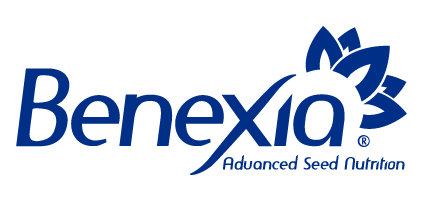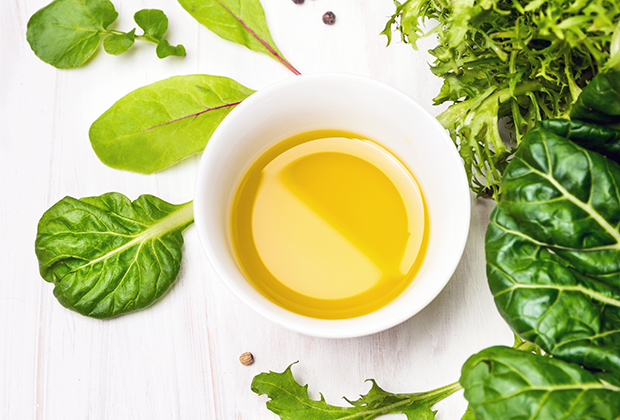Omega-3 fats are a group of polyunsaturated fatty acids that are important for a number of
functions in the body. They are an essential component of cell membranes and affect the function
of the cell receptors. They are integral in making hormones that regulate blood clotting,
contraction and relaxation of artery walls, and inflammation. They also bind to cell receptors that
regulate genetic functions. Because of this, omega-3 fats have been shown to improve
cardiovascular health, may help control lupus, eczema, and rheumatoid arthritis, and may play
protective roles in cancers and other conditions. They are also vital for brain development in
babies.
There are three types of omega-3 fatty acids. Alpha-linoleic acid (ALA) which comes from
vegetable sources, and eicosapentaenoic acid (EPA) and docosahexaenoic acid (DHA) which both
come from animal sources. While dietary consumption of ALA is similar in vegetarians and nonvegetarians/meat eaters, consumption of EPA and DHA are low in vegetarians and virtually absent
in vegans, unless they take supplements. The main concern for vegans (and vegetarians) is that the
clinical implications of very low levels of circulating EPA and DHA are unknown.
Omega-3 & Omega-6 Defined
Two important categories of polyunsaturated fats include omega-3 and omega-6 fats. They are
both essential fatty acids, meaning that the body can’t make them, so they have to be consumed
through food and beverages.
| Name | Sources |
| Omega-3: | |
| Alpha-linolenic acid (ALA) | nuts, seeds and plant oils like chia, flax, soy, canola |
| Eicosapentaenoic acid (EPA) Docosahexaenoic acid (DHA) | The body can convert some ALA into EPA and then to DHA, but only in very small amounts. Therefore, main sources include: salmon, Docosahexaenoic acid (DHA) mackerel, tuna, herring, sardines, algal oils or fish oil supplements. |
| Omega-6: | |
| Linoleic acid (LA) | nuts, seeds and refined vegetable oils |
| Arachadonic acid (AA) | made from the conversion of LA |
The ratio of circulating omega-6 fatty acids to omega-3 fatty acids is important as it can influence
the conversion of ALA to EPA and DHA. A diet high in omega-6 reduces the conversion by 40–
50%.
The Research
The majority of relevant studies* focus on the dietary intake and biological indicator status of ALA,
EPA, DHA, LA and AA in plasma, serum, erythrocytes, platelets, breastmilk, and adipose tissue of
vegans. When comparing omnivores, meat-eaters, vegetarians and vegans, the research shows a
significant difference in both the indicator status and the intake of these polyunsaturated fats.
Specifically, researchers found that vegans have:
- Higher concentrations of both ALA and LA
- Lower concentrations of both DHA and EPA
- Significantly higher omega-6:omega-3 ratio
- Significantly lower concentration of trans-fatty acids
The majority of vegans have omega-6:omega-3 plasma ratios that are ‘unbalanced’ and sometimes as
high as 10:1. A reduction in this ratio to 2–4:1 was shown to maintain normal metabolism and
increase the amount of DHA/EPA synthesized in the body. The authors of the Position Paper of the
Academy of Nutrition and Dietetics on Vegetarian (and Vegan) Diets suggest that the LA/ALA ratio should
not exceed 4:1 and that “it may be prudent to ensure a somewhat higher intake of ALA”.
Vegans should follow these recommendations:
• Remember omega-6’s are good too. Don’t eat fewer of them, just eat more omega-3s!
• Include good sources of ALA into their daily diet.
o The following are some examples of foods to eat daily in order to meet ALA’s dietary
recommendations from the Food and Agriculture Organization of the United Nations
(FAO) and the European Food Safety Authority (EFSA):
1 tablespoon of chia seeds OR
1 teaspoon of chia oil OR
2 tablespoons of hemp seeds OR
6 walnut halves
• Support the body in converting ALA into EPA and DHA by: consuming less saturated fat,
reducing excessive consumption of refined oils high in omega-6 (sunflower, corn, soy),
exercising, and of course consuming more sources of omega-3.
• Babies and breastfeeding or pregnant vegan mothers should consider supplementation with
omega-3 fats from microalgae due to the important role of omega-3 fats in fetal and baby brain
development (please discuss the use of supplements with a health professional).


